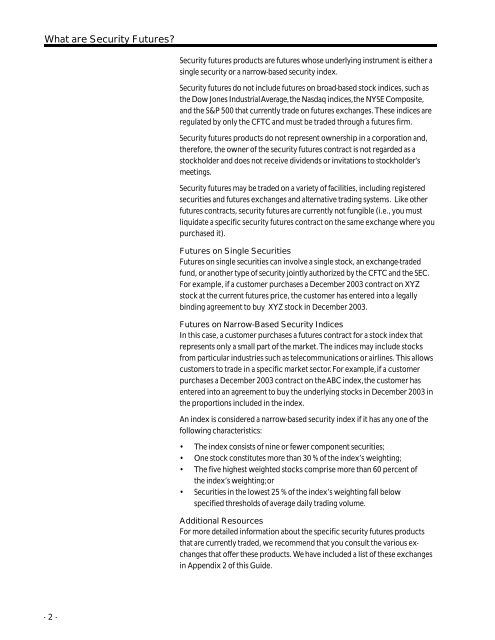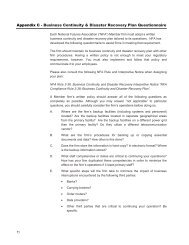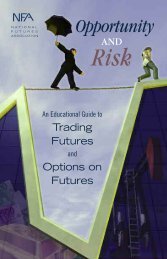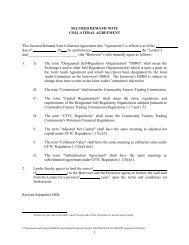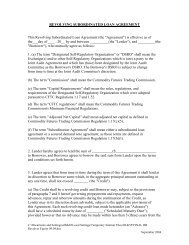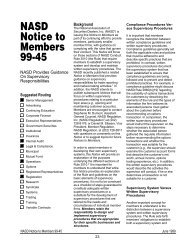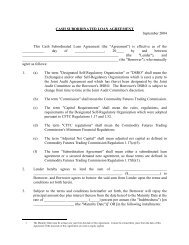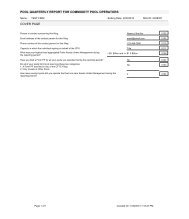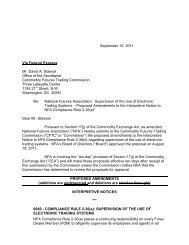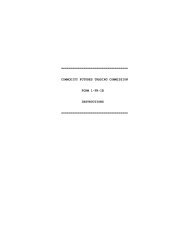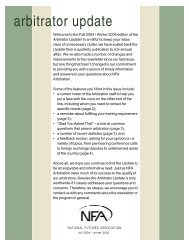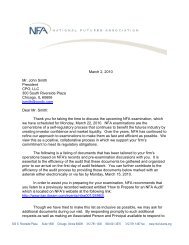Security Futures Products: A Regulatory Guide - National Futures ...
Security Futures Products: A Regulatory Guide - National Futures ...
Security Futures Products: A Regulatory Guide - National Futures ...
Create successful ePaper yourself
Turn your PDF publications into a flip-book with our unique Google optimized e-Paper software.
What are <strong>Security</strong> <strong>Futures</strong>?<br />
<strong>Security</strong> futures products are futures whose underlying instrument is either a<br />
single security or a narrow-based security index.<br />
<strong>Security</strong> futures do not include futures on broad-based stock indices, such as<br />
the Dow Jones Industrial Average, the Nasdaq indices, the NYSE Composite,<br />
and the S&P 500 that currently trade on futures exchanges. These indices are<br />
regulated by only the CFTC and must be traded through a futures firm.<br />
<strong>Security</strong> futures products do not represent ownership in a corporation and,<br />
therefore, the owner of the security futures contract is not regarded as a<br />
stockholder and does not receive dividends or invitations to stockholder’s<br />
meetings.<br />
<strong>Security</strong> futures may be traded on a variety of facilities, including registered<br />
securities and futures exchanges and alternative trading systems. Like other<br />
futures contracts, security futures are currently not fungible (i.e., you must<br />
liquidate a specific security futures contract on the same exchange where you<br />
purchased it).<br />
<strong>Futures</strong> on Single Securities<br />
<strong>Futures</strong> on single securities can involve a single stock, an exchange-traded<br />
fund, or another type of security jointly authorized by the CFTC and the SEC.<br />
For example, if a customer purchases a December 2003 contract on XYZ<br />
stock at the current futures price, the customer has entered into a legally<br />
binding agreement to buy XYZ stock in December 2003.<br />
<strong>Futures</strong> on Narrow-Based <strong>Security</strong> Indices<br />
In this case, a customer purchases a futures contract for a stock index that<br />
represents only a small part of the market. The indices may include stocks<br />
from particular industries such as telecommunications or airlines. This allows<br />
customers to trade in a specific market sector. For example, if a customer<br />
purchases a December 2003 contract on the ABC index, the customer has<br />
entered into an agreement to buy the underlying stocks in December 2003 in<br />
the proportions included in the index.<br />
An index is considered a narrow-based security index if it has any one of the<br />
following characteristics:<br />
• The index consists of nine or fewer component securities;<br />
• One stock constitutes more than 30 % of the index’s weighting;<br />
• The five highest weighted stocks comprise more than 60 percent of<br />
the index’s weighting; or<br />
• Securities in the lowest 25 % of the index’s weighting fall below<br />
specified thresholds of average daily trading volume.<br />
Additional Resources<br />
For more detailed information about the specific security futures products<br />
that are currently traded, we recommend that you consult the various exchanges<br />
that offer these products. We have included a list of these exchanges<br />
in Appendix 2 of this <strong>Guide</strong>.<br />
- 2 -


